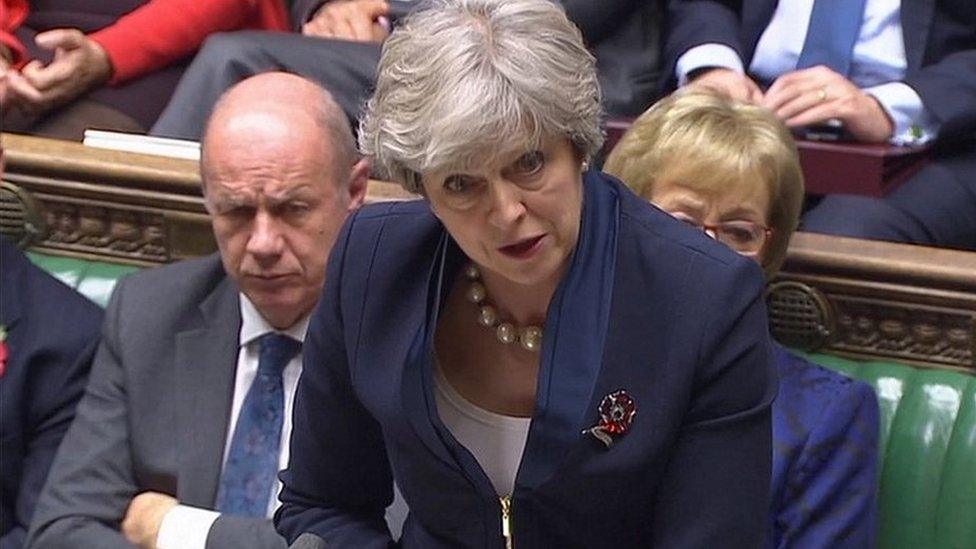What has happened to the Damian Green investigation?
- Published

It was meant to give a quick verdict. But what's happened to the investigation into Damian Green, the prime minister's number two?
It's being carried out by Sue Gray, one of the most powerful officials in Whitehall, who has the unenviable role of determining how serious ministers' misdemeanours are if they have been up to no good and get found out.
She has taken evidence from Mr Green himself, the young journalist Kate Maltby who alleged he behaved inappropriately to her and some of those involved in the investigation into Mr Green's conduct in Parliament years ago.
But it is taking rather longer than was initially expected, because of suggestions that there was porn on his work computer back then.
While it's understood the investigation has been intended to focus on its narrow remit it has, says one source familiar with what's happening, "been dragging on a bit".
It could hardly matter more to the stability of the government. Mr Green, who strongly denies having done anything wrong, is one of the prime minister's few true political confidants, a vital ally at a rocky time. And it's likely that his fate will be decided one way or the other within the next week.
The investigation is nearly finalised, I understand. But you and me may never know exactly what Ms Gray discovered.
The process in a case like this, when the inquiry is considering whether the ministerial code has been broken, is not to publish whatever has been found, warts and all. And it's not the independent official that technically has the final say in any case. Once the report is finished, here's what happens.
Official advice from Ms Gray lands on the desk of Sir Jeremy Heywood, the most senior civil servant in the country. He, in turn, passes advice on to the prime minister. It is her final call to decide what to do once she has seen that official opinion.
And normally, there is no intention to make any of that public beyond a simple declaration that there has technically been a breach of the code, or that there has not.
If the advice is crystal clear, one way or the other, then the decision for the prime minister is no doubt straightforward. She has said that she believes there ought to be no tolerance of any inappropriate behaviour. And the publicly stated reasons for Sir Michael Fallon's exit from the Cabinet appear, at least to some of his colleagues, to have set the bar quite low.
Above all, Theresa May has stated publicly on many occasions that this must be a moment to change the culture at Westminster, to make it clear that no one, in any party or in any situation, should have to put up with bad behaviour or harassment from politicians.
So if the advice is that there has been a clear breach of the rules that govern ministers' behaviour, Mr Green's cabinet career is likely to be over smartish.
And if there is a clear conclusion that he has done nothing wrong, well then it's straightforward too, and Mrs May will keep him by her side. There is no predicting what the reaction to that could be, but it would be politically the best-case scenario for Number 10.
But if the official advice is less black and white, it is more complicated for the PM. During such a rocky period, she will likely be reluctant to lose one of her few deeply trusted allies.
But some of Green's colleagues shake their heads regretfully believing that if there is even a whisper of bad behaviour, Theresa May will have no choice but to act.
In any case though, unless there is a leak of some of the conclusions from the very tightly guarded circle, and there is absolutely no sign of that yet, whatever happens we may never really know what the inquiry really found.